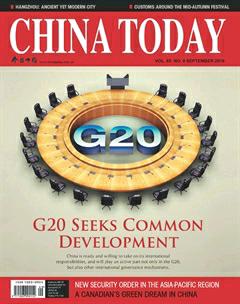Exchanges
Xi Jinping Meets U.S. National Security Advisor
Chinese President Xi Jinping met with U.S. National Security Advisor Susan Rice in Beijing on July 25, 2016.
Xi said that China pays high attention to China-U.S. relations and stands ready to work with the U.S. to maintain the overall development direction of bilateral relations and stick to the principles of nonconflict, non-confrontation, mutual respect, and winwin cooperation to facilitate their continuous and stable development. He emphasized that the common interests shared by China and the U.S. far outweigh their differences, and that the two sides could and need to cooperate in many areas. Both countries should actively expand cooperation in bilateral fields, such as the economy, trade, and investment, in multilateral fields, including tackling climate change, as well as in international and regional issues to make practical cooperation the ballast of Sino-U.S. relations. Both sides should effectively manage and control differences and respect each others core interests.
Susan Rice said that President Barack Obama has always believed that U.S.-China relations are the most important of all bilateral relations in todays world. Chinas success is in line with the interests of the U.S. If the two countries join hands for cooperation, both sides could inject new impetus to the efforts of the international community in dealing with global challenges, including climate change. The U.S. supports enhancing mutual trust through joint efforts, strengthening practical cooperation and making it the ballast of the bilateral relations. It moreover stands ready to keep close communication with China and effectively manage and control differences.
Solid Steps Needed to Implement FOCAC Summit Outcomes
Chinese President Xi Jinping sent a congratulatory letter to the Coordinators Meeting on the Implementation of the Follow-up Actions of the Johannesburg Summit of the Forum on China-Africa Cooperation(FOCAC) unveiled on July 29, 2016.
The Johannesburg Summit held last December marked the beginning of a new era of win-win cooperation and common development between China and Africa, and was a milestone in the history of ChinaAfrica relations, Xi said in the letter. Over the past six months, China and Africa have worked together to overcome the negative impact of the sluggish world economy, reached consensus on how to implement the outcomes of the summit and achieved tangible results, showing the dynamic development of China-Africa cooperation.
Xi also noted that the coordinators meeting in Beijing was an important step towards implementing the consensus of Chinese and African leaders and the outcomes of the FOCAC Summit. The meeting demonstrated to the world, once again, that no matter how the international landscape may change, China and Africa are committed to pursuing unity and cooperation, and that Chinas support for African peace and development will never change. The current weak performance of the world economy brings both opportunities and challenges for the economic development of China and Africa, Xi said, adding that China and Africa must stand shoulder to shoulder and march forward hand in hand. By pooling wisdom and strength and advancing their friendship and cooperation, both sides will ensure that the results of the summit benefit their 2.4 billion people.
The Sixth East Asia Summit Foreign Ministers Meeting
Chinas Foreign Minister Wang Yi attended the sixth East Asia Summit (EAS) Foreign Ministers Meeting held in Vientiane of Laos on July 26, 2016.
Wang raised four principles. First, the established development direction of the summit should be adhered to; summit participants should stick to its nature as a “leadersled strategic forum,” hold fast to ASEANs central role in the EAS, and insist on the“ASEAN way,” which includes reaching agreements on the principle of consensusbuilding and accommodating the comfort level of all parties.
Second, importance should be attached to development and cooperation. Wang emphasized the need to stick to development, thoroughly implement the UNs 2030 Agenda for Sustainable Development, accelerate the construction of free trade areas, and strive to narrow differences in development within the region.
Third, cooperation should be encouraged to tackle non-traditional security challenges. At present, increasing threats posed by terrorism and other non-traditional security issues in the region have become a common challenge confronting regional countries. Forces must be synergized to curb the sprawling momentum of extremist terrorism.
Fourth, regional security architecture should be improved. The EAS should hold in-depth discussions on innovating security concepts, integrating existing visions on the security architecture, and building a new type of regional security architecture that reflects regional reality and meets the demands of various sides.
Chinese Vice Premier Meets with IOC Chief
Chinese Vice Premier Liu Yandong met with International Olympic Committee (IOC) President Thomas Bach in Rio de Janeiro on August 6, 2016 on the sidelines of the Olympic shooting competitions.
Liu, who attended the opening ceremony of the Rio Games as special envoy of Chinese President Xi Jinping, congratulated Bach on the launch of the games and reiterated Chinas commitment to the Olympic Movement.
Liu said that sport could contribute to world economic and social development. “The Chinese government has always attached great importance to the role that sport plays,” said Liu. “We will continue to contribute to the Olympic Movement by advancing the Fitness for All campaign in the build-up to the 2022 Winter Olympics.”
Bach spoke highly of Chinas active role in the Olympic Movement and the contribution China has made, saying that the IOC was willing to provide necessary assistance for China in advance of the Winter Games.
Liu and Bach watched the womens 10m air rifle competition, in which Chinas Du Li and Yi Siling respectively claimed silver and bronze medals.

